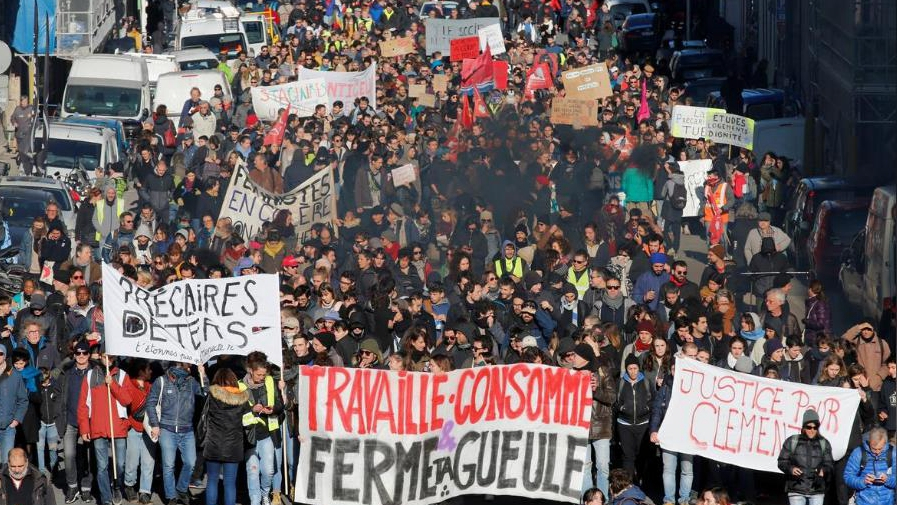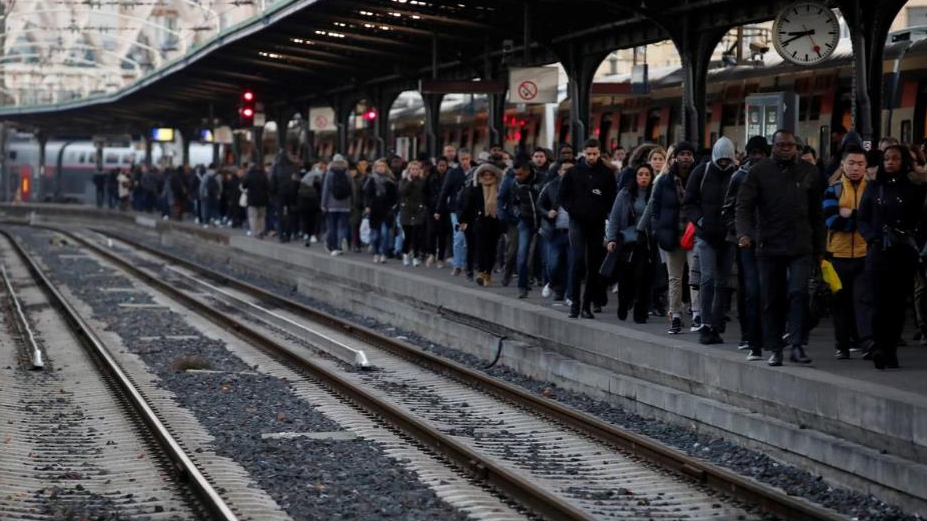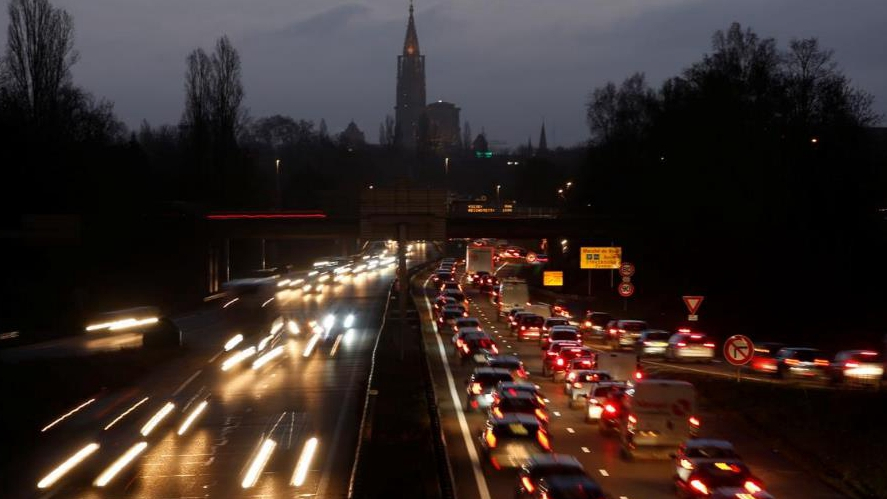
Protesters hold banners during a demonstration against French government's pensions reform plans in Marseille as part of a second day of national strike and protests in France, December 10, 2019. /Reuters Photo
Protesters hold banners during a demonstration against French government's pensions reform plans in Marseille as part of a second day of national strike and protests in France, December 10, 2019. /Reuters Photo
The crowds of protesters taking to the streets of France on Tuesday to denounce President Emmanuel Macron's pension reform may have been smaller, but positions on both sides appeared as hardened as ever a day before the government was scheduled to reveal the plan's final details.
Organizers had wanted to match the more than 800,000 who participated in a first day of protest last Thursday, but the turnout was much lower, despite the fine weather.
"Given the depth of discontent, there is a need to get more people on the streets," said Philippe Martinez, head of the hardline CGT union.
The Interior Ministry estimated that 339,000 people marched in France, including 31,000 in Paris. On December 5, it put the figure at 806,000 nationwide, including 65,000 in Paris.
Union leaders acknowledged the crowds were smaller, but showed no sign of backing down in a battle of political will that could make or break Macron's presidency.
The CGT called for further protests on December 12 and December 17.

Commuters walk on a platform at Gare de l'Est train station during the national strike in Paris, December 10, 2019. /Reuters Photo
Commuters walk on a platform at Gare de l'Est train station during the national strike in Paris, December 10, 2019. /Reuters Photo
The French government is determined to simplify a complicated pension system that offers some of the world's most generous benefits.
Macron says a single, points-based system would be fairer, giving every pensioner the same rights for each euro contributed.
The unions say Macron wants to strip workers of hard-earned benefits and threatens their quality of life.
No magical announcement
The strikes follow months of negotiations. On Wednesday, Prime Minister Edouard Philippe is set to outline the reform's key elements. He told ruling party lawmakers on Tuesday that he did not expect a sudden end to the unions' revolt.
At a weekly parliament session dominated by questions about pension reform, Philippe repeatedly said that Macron had been elected on a platform to reform the pension system.
"A universal, points-based pay-as-you-go system will be better than the multitude of systems we have now," he said.

Rush hour traffic fills one of the motorways leading to Strasbourg during the national strike in Paris, December 10, 2019. /Reuters Photo
Rush hour traffic fills one of the motorways leading to Strasbourg during the national strike in Paris, December 10, 2019. /Reuters Photo
Failure to reform would mean a deficit in the pensions system of up to 17 billion euros (18.74 billion U.S. dollars), 0.7 percent of GDP, by 2025, an independent pension committee forecast.
Macron is aware of strong public opposition to simply raising the retirement age of 62. One alternative is to curb benefits for those who stop working before 64 and give a boost to those who leave later.
Room for concessions may lie in the pace at which the changes are phased in.
"What's at stake goes much beyond simply overhauling the pension system," said Christopher Dembik, an economist with Saxo Bank in Paris. "For Emmanuel Macron, it's about reasserting his ability to reform the country."
The strike is among the biggest since 1995 when Prime Minister Alain Juppe was forced to abandon an overhaul of the pension system after weeks of industrial action. Juppe's cabinet never recovered from that defeat.
(With input from Reuters)